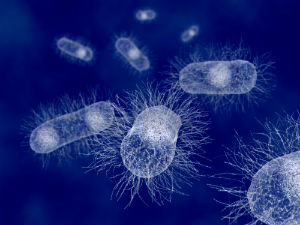(DrEddyClinic News) Your gut should be home to over 100 billion bacteria, but antibiotics, pesticides http://www.dreddyclinic.com/forum/viewtopic.php?f=11&t=31940, stress, and genetically-modified foods are just a few of the things that can weaken that diversity. [1] Your gut’s bacteria needs to stay healthy or problems like irritable bowel syndrome, gluten allergies, and even obesity can be more likely. Some even think the recent rise in autism, Alzheimer’s, and multiple sclerosis could even be connected to an unhealthy gut! [2] [3] [4] Let’s look at just 3 reasons why healthy gut flora are so important.

1. Discourages Crohn’s Disease
Crohn’s disease http://www.dreddyclinic.com/forum/viewtopic.php?f=36&t=33166 is often difficult to diagnose from stool samples, but the key to the disease could be found inside the gut. Researchers looked at tissue samples from the intestinal walls of “447 newly affected and 221 non-affected people” and found an overabundance of certain bacteria types was linked to inflammation levels. [5] That’s just more reason to encourage healthy gut flora!

2. Promotes Digestion and Digestive Health
This is the big one most people are aware of and it probably comes as no surprise that bacteria levels inside your gut can help with digestion http://www.dreddyclinic.com/forum/viewtopic.php?f=36&t=32748. Recent evidence suggests a healthy and diverse microbiome could even help with intestinal integrity. [6] Basically, that’s how the body separates the good from the bad. A healthy gut only allows what’s useful to pass through to the body.
3. Supports Mental Health
When you eat a big meal, you stop when you’re full, right? Well, a healthy gut could even help your brain know when you’ve had enough by releasing specific satiety hormones. [7] It could also play a role in depression and anxiety http://www.dreddyclinic.com/forum/viewtopic.php?f=9&t=31815. [8] Recent evidence even suggests a link between gut health and autism, with researching showing that probiotic treatments could help autistic children http://www.dreddyclinic.com/forum/viewtopic.php?f=11&t=34714 by improving bacteria levels. [9] [10] Scientists are finding more and more about this gut-brain connection all the time!
How Can You Support Healthy Gut Flora?
So how can you support healthy flora? Well, you could roll around on the bathroom floor to get your dose of bacteria (or any other floor, for that matter.) [11] But then, that seems a little extreme, and you’d be getting all the bacteria–good and bad. Recent evidence suggests a good diet and exercise could influence gut flora, so why not start a new fitness habit? [12] Of course, you could always just turn to probiotic-rich foods http://dreddyclinic.com/forum/viewtopic.php?f=9&t=32185 like fermented vegetables and yogurt. I recommend and use these two supplements: Latero-Flora™ http://bit.ly/dreddyclinic-latero-flora, which is the B.O.D. Bacillus Laterosporus strain and high quality probiotic supplement http://bit.ly/dreddyclinic-floratrex is another surefire way to bridge the gaps in your diet.
What would you do to encourage healthy gut flora? Tell us in the comments!
-Dr. Edward F. Group III, DC, NP, DACBN, DCBCN, DABFM
https://www.youtube.com/watch?v=o8LdbZjVAa8
References:
1. Johnston, K. Endangered Species: Your Gut Flora not allowed class="postlink" href="http://www.theepochtimes.com/n3/345941-endangered-species-your-gut-flora/">http://www.theepochtimes.com/n3/345941- ... gut-flora/. Epoch Times.
2. Bhattacharjee, S. & Walter, W. J. Alzheimer’s disease and the microbiome http://www.ncbi.nlm.nih.gov/pmc/articles/PMC3775450/. Frontiers in Cellular Neuroscience. 7 (153).
3. Moyer, M. W. Gut Bacteria May Play a Role in Autism http://www.scientificamerican.com/article/gut-bacteria-may-play-a-role-in-autism/. Scientific American. 25 (5).
4. Bhargava P. & Mowry, E. M. Gut microbiome and multiple sclerosis http://www.ncbi.nlm.nih.gov/pubmed/25204849. Current Neurology and Neuroscience Reports. 14 (10).
5. Gevers, D. et al. The Treatment-Naive Microbiome in New-Onset Crohn’s Disease. Cell Host & Microbe http://www.cell.com/cell-host-microbe/abstract/S1931-3128(14)00063-8. 15 (3).
6. Christensen, E. G. Dietary xylo-oligosaccharide stimulates intestinal bifidobacteria and lactobacilli but has limited effect on intestinal integrity in rats http://www.ncbi.nlm.nih.gov/pubmed/25238818. BMC Research Notes.
7. Bohórquez, D. V. et al. Neuroepithelial circuit formed by innervation of sensory enteroendocrine cells http://www.ncbi.nlm.nih.gov/pubmed/25555217. Journal of Clinical Investigation.
8. Foster, J.A. & McVey-Neufeld, K.A. Gut-brain axis: how the microbiome influences anxiety and depression http://www.ncbi.nlm.nih.gov/pubmed/23384445. Trends in Neurosciences. 36 (5).
9. Kang, D. et al. Reduced Incidence of Prevotella and Other Fermenters in Intestinal Microflora of Autistic Children http://journals.plos.org/plosone/article?id=10.1371/journal.pone.0068322. PLoS ONE.
10. Patterson, P. et al. Microbiota Modulate Behavioral and Physiological Abnormalities Associated with Neurodevelopmental Disorders http://www.cell.com/cell/abstract/S0092-8674(13)01473-6?cc=y. Cell. 155 (7).
11. Gibbons, S. M. et al. Ecological succession and viability of human-associated microbiota on restroom surfaces http://www.ncbi.nlm.nih.gov/pmc/articles/PMC4277569/. Applied and Environmental Microbiology.
12. Clarke, S. F. et al. Exercise and associated dietary extremes impact on gut microbial diversity http://www.ncbi.nlm.nih.gov/pubmed/25021423. Gut.
No comments:
Post a Comment